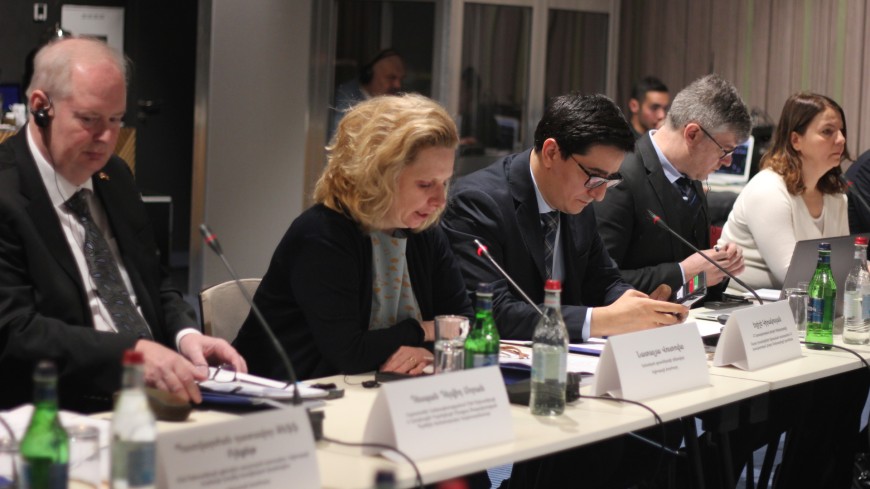On 10 March 2020 the Project “Human rights and women in the armed forces of Armenia’’ (the “Project”) organised an expert discussion on the draft Methodology on identifying systemic patterns of human rights violations developed by the Project, as well as the main challenges during the re-opening of the cases on the violations in the army following the judgments of the European Court of Human Rights (the European Court).
Representatives of the Ministry of Defence, Ministry of Justice, Office of the Governmental Agent before the European Court, judges, military prosecution and military police, investigators, personnel of the Human Rights Defender’s office, as well as lawyers taking cases on human rights violations in the armed forces participated at the event.
The event presented an in-depth program that included presentation of the draft Methodology, the approaches taken by the Committee of Ministers of the Council of Europe in identifying systemic human rights violations, sharing the best practices of Council of Europe member states regarding reopening and re-examination of cases related to human rights violations in the armed forces. The participants benefited from the exchanges with the UK Judge Advocate General His Honor Judge Jeff Blackett and the Council of Europe international consultant Mr Lilian Apostol.
As a coordination effort aimed at preventing human rights violations in the armed forces in Armenia, the Governmental Agent’s office suggested considering the possibility of establishing an intergovernmental committee. The latter was suggested to be composed of the representatives of the interested parties that will discuss cases of systemic human rights violations in the armed forces and in other areas. This proposal was welcomed by the participants. As a follow-up the Project will conduct a comparative study of the existing models of similar inter-agency structures in other Council of Europe member states to be provided to the Governmental Agent’s office for further consideration when establishing the proposed committee.
The Project is implemented by the Council of Europe within the framework of the Council of Europe Action Plan for Armenia 2019-2022 and funded by the United Kingdom. Action Plan level funding is provided by Germany, Ireland, Liechtenstein, Norway and Sweden.





